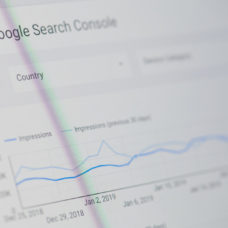Mozilla has announced that it will soon block all ad tracking by default on its Firefox browser.
Mozilla, the company behind the Firefox web browser, tends to adopt early.
For instance, one of the largest aims of the company is to fight “Fake News”. So, last year, they launched the Mozilla Information Trust Initiative (MITI). The group involves interest groups and businesses who work together to understand what fake news is and find ways to eliminate it.
They also want to enhance cybersecurity for their users with WebAuthn tech.
The technology works using physical authentication devices such as a YubiKey. Mozilla received high praise from those in the tech community, including Dropbox.
So how does Firefox’s latest change affect competing web browser Google Chrome?

Commitment to User Privacy in a Battle for Searches
If you’re like me, you’ve disabled all possible location tracking on your phone. However, The Verge recently covered that Google can and does still track you despite this.
They use your web history, map history, and even browser searches to track you.
As The Verge article points out, you can better control this feature by turning off “Web and App Activity”. But, again, Google STILL finds ways to track you. As you can see above, if you use Gmail, Google logs the ads you see when you use it.
Ad tracking remains a contentious issue on the world wide web.
But Mozilla, and thereby Firefox, are committed to user privacy — including making ad tracking blocked by default. They announced last week that all future versions of Firefox will do this, but changes will be added gradually.
Mozilla will first target trackers that affect page load speeds and then move on to cross-site tracking. The final step will target predatory practices such as cryptomining.
Their blog post contends that this is about even more than user data. Mozilla wants to give users a voice in this matter saying: “Some sites will continue to want user data in exchange for content, but now they will have to ask for it, a positive change for people who up until now had no idea of the value exchange they were asked to make.”
You can try to new functions out on Firefox Nightly right now to get ahead of the curve.



















Comments (0)
Most Recent